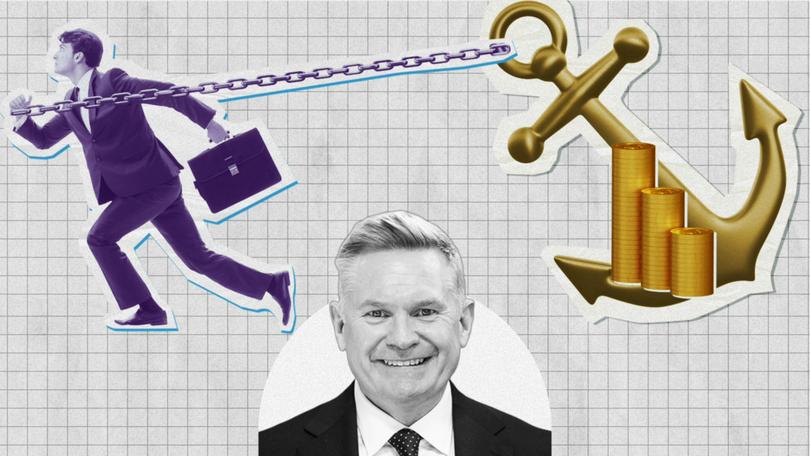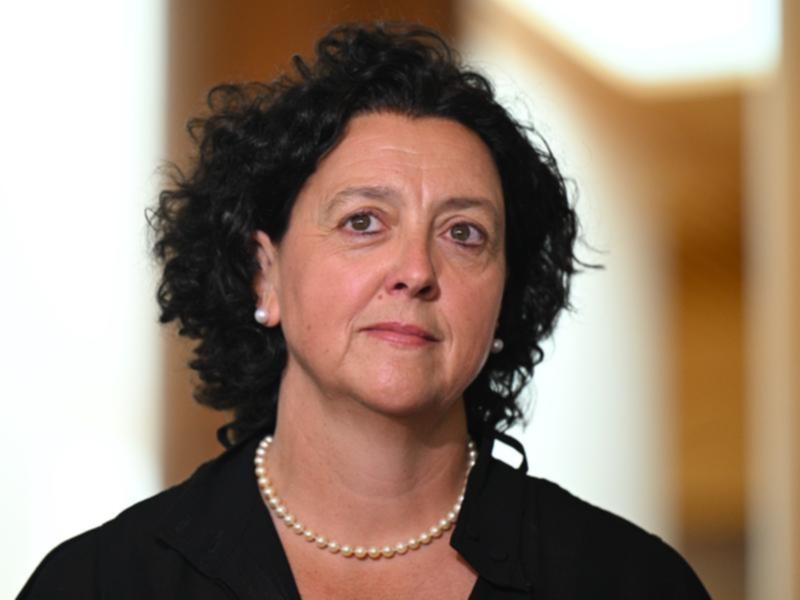MICHAEL USHER: How the HECS can we fix the issue of outrageous university debt weighing on young Aussies?
A quick poll of the young people at my kitchen bench shows students are drowning in debt before they’ve even left university.

There’s a side to my eldest son’s university education that I’ve turned a blind eye to, and I recently realised that was a mistake.
Having freighted him and his brother and sister through private schools, I took the view that the cost of tertiary education would be their decision, cost and responsibility.
I was wrong to do that. Four years into his degree, I’ve only just had a real conversation with him and realised what the heavy burden of his fees is doing to his state of mind.
Sign up to The Nightly's newsletters.
Get the first look at the digital newspaper, curated daily stories and breaking headlines delivered to your inbox.
By continuing you agree to our Terms and Privacy Policy.In short, it’s damaging. It’s playing on his mind frequently. A debt that at the age of 22 he can’t get his head around nor see how long it will take him to pay when he starts working.
Admittedly he’s chosen a long degree. He’s pursuing law with some passion, but with every year and a new unit, he’s getting himself into considerable debt.
He and a bunch of his mates, all around the same age, were at our home the other weekend to watch the opening round of the footy season. I was keen to hear their views on HECS and accumulating debt just as they’re starting life.
What was a background issue for me when I studied, a nuisance that would take a short few years in full-time work to pay off, is very much a present and persistent consideration for these young students.
One young gent said he’d pulled out his degree to work full-time in a different field. This surprised me, and when I said that he remarked: “It’s actually a good thing, I’m not accumulating HECS debt anymore. Plus, I need to work full time to rent and save and get ahead.”
Another of the mates had sped up his degree and crammed units to end his study earlier and get into his chosen field. Same cost and no savings but working sooner rather than later let him “get on top of the HECS debt faster, and my wage is pretty much going toward wiping out that debt as fast I can. It’ll take years if I just rely on annual tax time, plus interest is bound to keep increasing.”
Given that half-time chat had turned to weighty matters of debt and not the footy scores, I threw in a few more subjects — my own poll if you like.
Thoughts on owning a home? Impossible, was the unanimous reply. Renting? Way too expensive and plan to stay with parents as long as possible. Share house or similar? Maybe, but electricity and other utilities are too expensive and we’d never get HECS debts paid off for a decade or more.
It’s an issue on which these young voters are extremely active. I’d go as far as to say that going on my kitchen bench poll at half-time, any political party that addresses the escalating cost of tertiary fees and costs might well find a new and motivated band of voters. That debt is pressing on their minds and affecting their future plans.
Student loans and debt have been smartly seized on as a priority for the teal independent MP Dr Monique Ryan. She’s been applauded for taking on an issue, that’s proving prickly for both the big parties.

Her petition to change the HECS debt landscape has received a record number of signatures. More than 220,000 and growing daily.
This I’d argue is not just worried students, it’s deeply worried parents like me who see their children staring at an increasingly hopeless financial start to life. Or children who will dodge further education because it’s just too expensive. That’s a loss for them and us as a society.
Dr Ryan’s petition is making sure HECS is a Budget issue and after that an election issue. It’s exactly what smart independents should be doing in Parliament. Picking an issue that the big parties fear and running with it without fear. It’s grabbed my attention, and clearly a lot of others also.
At the core of Dr Ryan’s problem with HECS is the issue of indexation. Recently quoted, the independent said: “If you are an average Australian now finishing a degree and earning around $60,000 a year and have an average-size HECS debt, it increased last year by $1700 because indexation was higher than the amount you paid off.”
Another of her concerns is the impact on young women who take time off work after graduation for family, and “see their debt rise and rise”.
“We are going through a housing crisis, a cost-of-living crisis and a climate crisis. We don’t need a HECS crisis as well,” she said.
Some of the degrees, like my son’s, have really shot up in cost. A reported 50 per cent over five years. The sensible solution being pushed by independents and education experts is to cap the indexation and make it less vulnerable to inflation and times of surging costs.
A few on the extreme ends of politics would prefer a return to free university. A game changer for a working and middle-class generation between 1974 and 1989, when Labor prime minister Bob Hawke introduced HECS. A few years earlier in 1986, his government had introduced a $250 enrolment fee, presented at the time as a small fee that students could afford.
Free universities will never happen again. They have become enormous business enterprises. Their curriculum, courses and standards have expanded. The opportunities and education in some are world standard. Even if some operate in a somewhat concerning self-fulfilling bubble of academia and pursuit of PhDs for PhDs’ sake. But like I say, that’s perhaps cause for more discussion at another time.
But the problem is real. In any one tertiary-educated Australian family unit right now, you’ll have grandparents who rode through university absolutely free. Parents who might have paid $250 for admission. And a child of theirs potentially accumulating more than $15,000 a year in HECS debt.
It’s a tipping point.
Something must give.
In terms of Labor policy and values, it’s an uncomfortable position for Prime Minister Anthony Albanese, and that’s only growing more uncomfortable as Monique Ryan’s petition for HECS reform attracts thousands more signatures every day.
